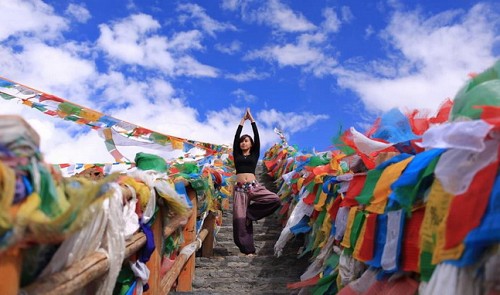A confusing decree recently issued by the Vietnamese government has sparked public concern over potential requirements for Internet users to obtain permits for sharing their photos online.
The Vietnamese prime minister has signed a decree set to take effect from August 15 that aims to administrate photography exhibitions in the country by requiring individuals or organizations that hold such displays to apply for a permit from relevant authorities.
It would have been a sensible thing to do had the definition of ‘photography exhibition’ stipulated in the decree been narrowed down from “the dissemination, introduction, or presentation of photographic works, with or without the use of Internet.”
The new decree has forced questions and raised eyebrows from photographers wondering whether authorities would, or could, require social media users to obtain permits for simply sharing their photos online.
‘Posting photos online is a complicated matter’
“In principle, a permit is required for posting photos on Facebook with the involvement of any form of dissemination, introduction, or promotion,” Vi Kien Thanh, general director at the Authority for Arts, Photography, and Exhibition (AAPE), said in an interview with Tuoi Tre (Youth) newspaper on Tuesday.
AAPE was among the bodies involved in the drafting of the decree in question.
“The regulation wasn’t in place but we’re finding it is a matter that needs to be regulated,” Thanh said. “The act of posting photos online is a complicated matter.”
Thanh added that the regulation could affect not only professional photographers, but also simple point-and-shoot citizens, depending on how they present the photos.
The AAPE general director explained that posting personal photos on Facebook is not considered an exhibition and that “only posting photos in the form of an online exhibition falls under the governing scope of the decree and requires a permit.”
Thanh, however, failed to give a clear answer when asked to elaborate on the difference between ‘personal photos’ and ‘online exhibitions,’ saying that the Ministry of Culture, Sports, and Tourism would issue a circular to elaborate on the definitions on a later date.
In a further interview with Tuoi Tre on Wednesday, however, Thanh said, “Online exhibitions might include websites where photographers can submit their photos, and public viewers can access and view those photos.”
“Similarly, if a Facebook user accepts photo submissions from all sources and lets anyone view those photos, it could be considered an online exhibition,” Thanh said.
A flawed decree
Na Son, a famous Vietnamese photographer, said he was in shock after reading the new decree.
“There are vague terms and provisions in this legal document that will definitely tamper with photographic activities alongside many aspects of our private and personal lives,” Son said.
Son gave examples of photography contests, festivals, or galleries held as internal activities among members of certain groups, forums, or organizations that are happening on the Internet on an hourly basis.
“In light of the new decree, are the organizers of all those activities required to apply for a permit?” Son asked.
“There are over 30 million Facebook users and hundreds of thousands of Instagram users in Vietnam who ‘exhibit their photographic works’… on the Internet on a daily basis,” Son said. “Are they all required to submit a written application? Which authority would be able handle all the paperwork?”
Son went even further to cite articles in Vietnam’s Constitution, which grant Vietnamese citizens inalienable rights over their private lives, as well as rights to pursue artistic creation and benefit from the act, raising the question of whether the decree is unconstitutional.
Meanwhile, President of the Vietnam Association of Photographic Artists Vu Quoc Khanh asserted that the decree might be a precautionary step taken by administrative authorities in case online exhibitions become popular in the future.
“However, there has to be a clear line between what are considered online exhibitions and what are photos shared with family and friends,” Khanh said. “Above all, everybody needs to be responsible for their own actions.”






















































